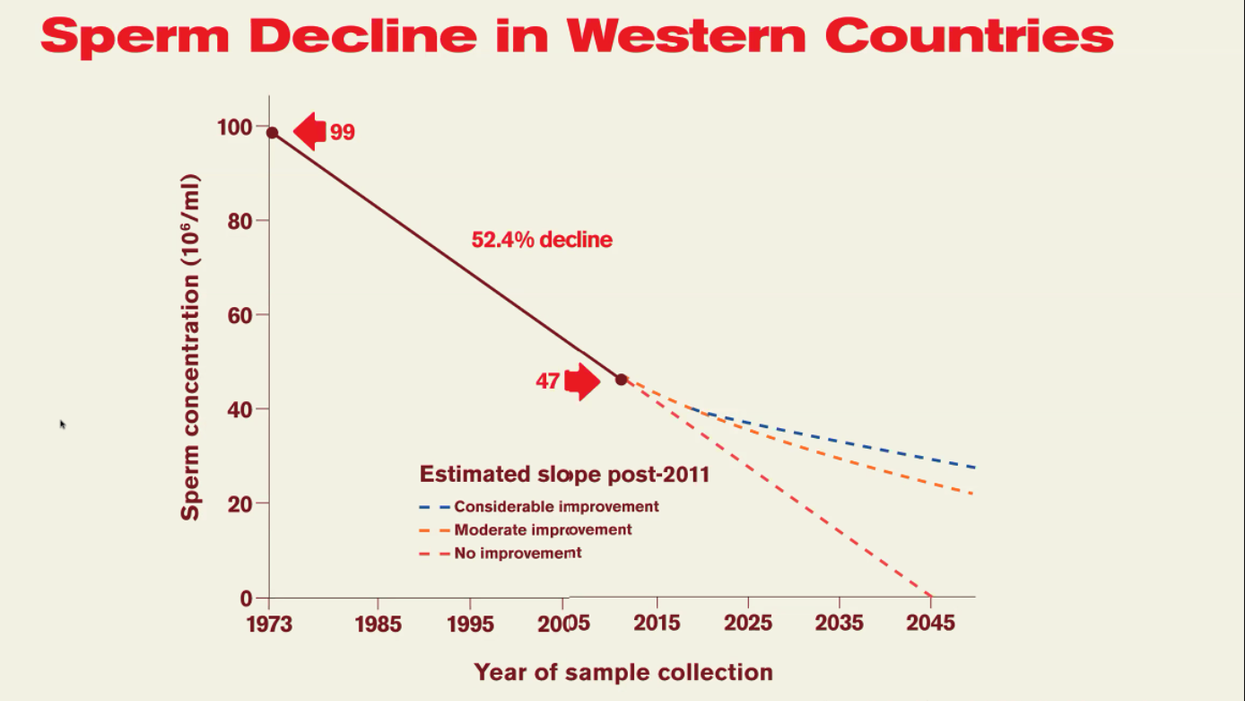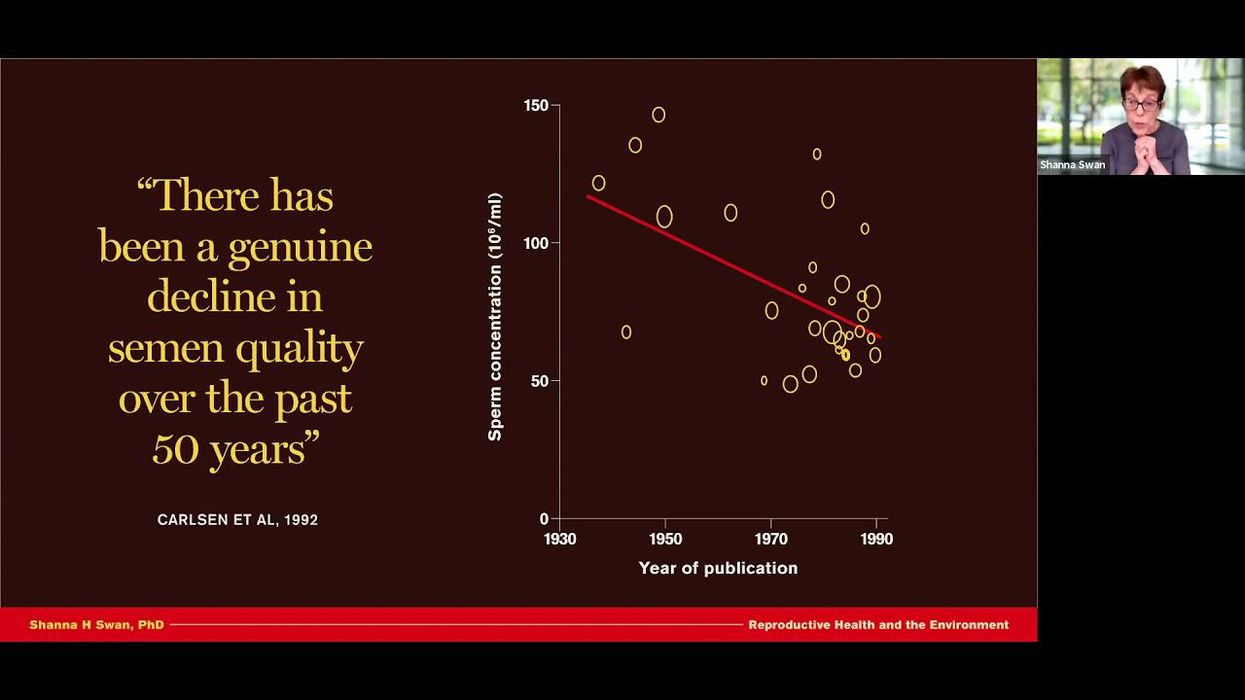On fertility, we are running out of time.
And the growing number of plastics in our lives are accelerating the crunch.
That's the core message in a pair of webinars this week on humanity's infertility crisis, centered around Tuesday's publication of "Count Down," by reproductive health expert Dr. Shanna Swan.
Worldwide, sperm counts have declined 50 percent in males the past 50 years, Swan noted. Other key aspects of human fertility – miscarriages, testosterone levels, premature egg depletion, difficulty conceiving – are all changing at a similar rate.
The data worldwide are so clear and so consistent, Swan noted on a webinar hosted by Plastic Pollution Coalition Wednesday, that the trend is unmistakable: by 2045 median sperm counts in men are headed toward zero.
"This means that half the men would have zero" viable sperm, Swan said, "and the rest would have very close to zero."
"We want to push this curve in a direction that keeps it from hitting zero."
Phthalates: The 'everywhere' chemical

This rise in infertility, Swan said, is the fault not of genetics – "this is too fast for genetic change" – but of our environment: Specifically hormone-hijacking compounds known as "endocrine-disrupting chemicals" found in everyday plastics used throughout the modern world.
These chemicals, particularly a family of EDCs called phthalates, are virtually inescapable, said Carnegie Mellon University chemist Terry Collins Tuesday on a webinar hosted by the Collaborative on Health and the Environment.
"Nothing you do – hardly anything – no, I think maybe nothing you do, from when you get up in the morning to when you go to sleep, is not permeated by chemicals that chemists have made," Collins said.
Nor is the infertility crisis limited to humans. Life worldwide faces similar or higher exposures to these pollutants. Scientists are seeing feminization in fish and gender blurring in frogs exposed to endocrine-disrupting compounds.
"We are now the canaries in the coalmine," said Pete Myers, founder of Environmental Health Sciences, publisher of EHN.org, during Wednesday's Plastic Pollution Coalition webinar. "We have to take the warnings from people and begin to ask, 'What should we be doing to protect the rest of life on Earth, along with people.' "
Solutions to plastic pollution
Those solutions aren't easy, panelists on both webinars agreed.
"While it's true we cannot shop ourselves out of this crisis, we can reduce our daily exposure," Swan said.
A few tips identified in "Count Down" and by panelists:
- Buy fresh, unprocessed food.
- Don't eat canned food, unless you know how or whether manufacturers line their cans.
- Don't eat out of plastic, or heat food in plastic.
- Pay attention to cosmetics and personal care products, using guides like those generated by the Environmental Working Group.
- Don't handle thermal paper receipts, as they are a chief pathway for BPA, a known hormone hijacker.
Need for regulatory reform on plastics

Many chemicals found in plastics can have adverse effects on human health, including increased risk of infertility.
But what's really needed, panelists agreed, is education and policy change "at every level."
"Every aspect of government and of course regulatory agencies have to change," Collins said. "Advocacy and the media has to change. This is our challenge. We have almost no time."
Watch the Collaborative on Health and Environment webinar here.
The Plastic Pollution Coalition webinar on whether humanity will survive plastic pollution will be available here in about a week, according to organizers.
Editor's note: Dr. Shanna Swan is an adjunct scientist with Environmental Health Sciences, publisher of EHN.org and DailyClimate.org.
- Plastic pollution, explained - EHN ›
- Count down: The infertility crisis - EHN ›
- WATCH: The latest evidence of widespread sperm count decline - EHN ›
- Frequently asked questions on the new study on sperm count decline - EHN ›
- A new analysis shows a “crisis” of male reproductive health - EHN ›
- Dr. Shanna Swan on chemicals, hormones and our reproductive health - EHN ›
- Are microplastics invading the male reproductive system? - EHN ›
- Personal care products may reduce success of IVF treatments - EHN ›

















